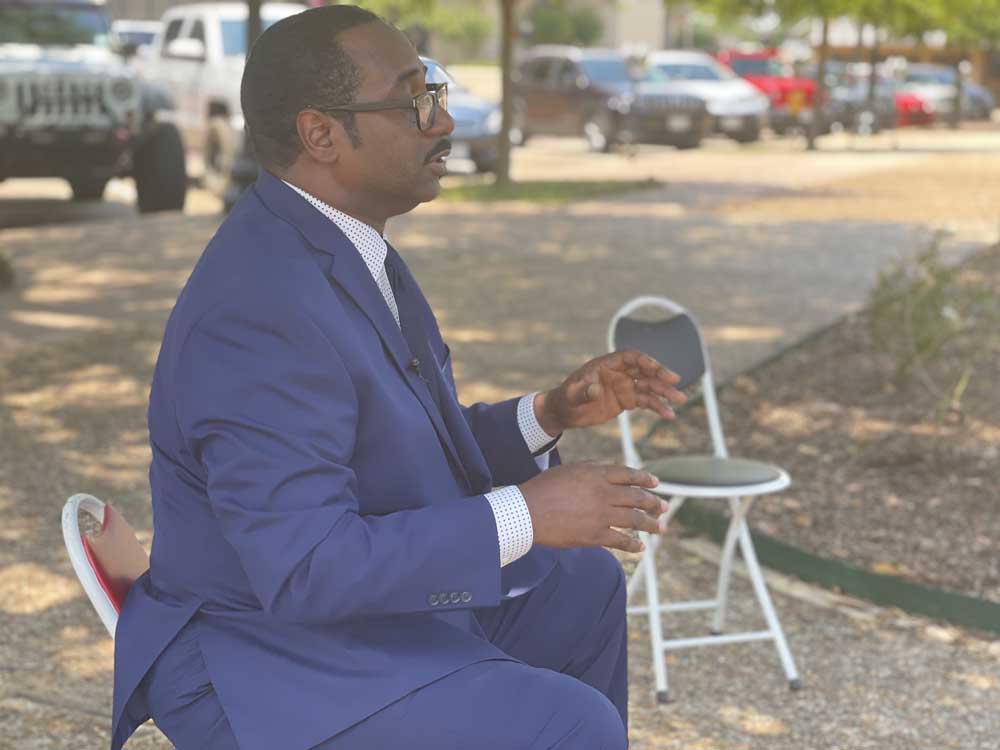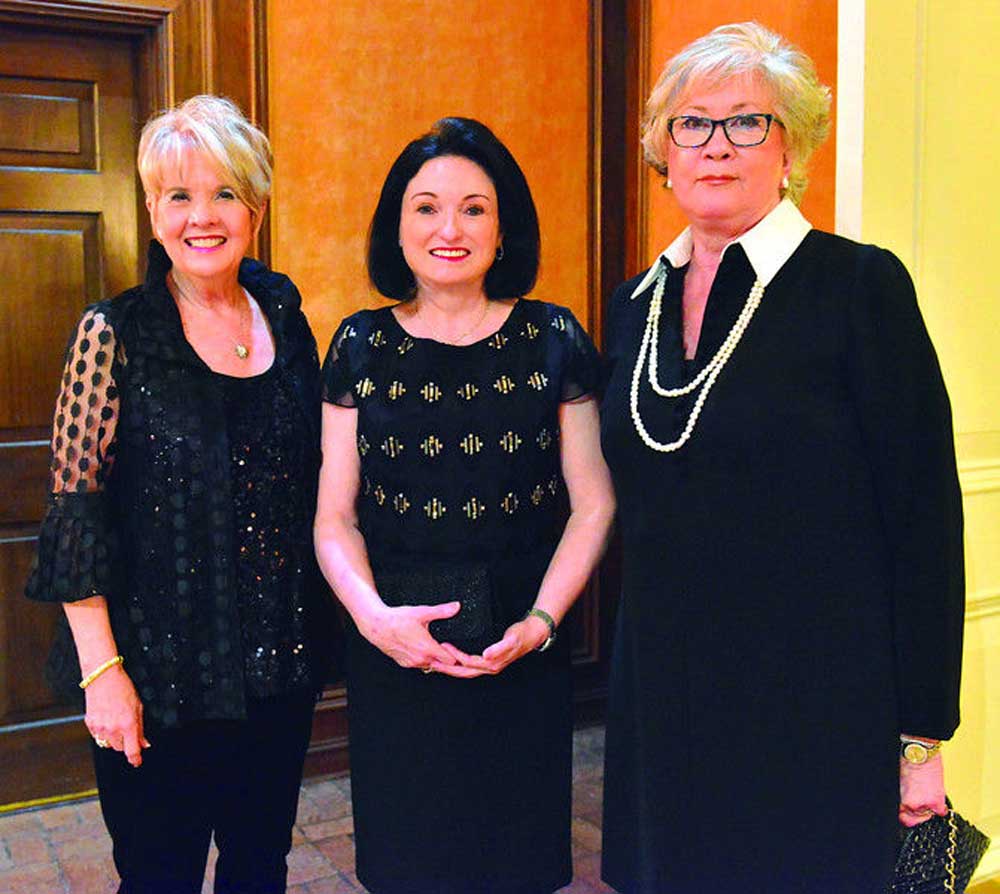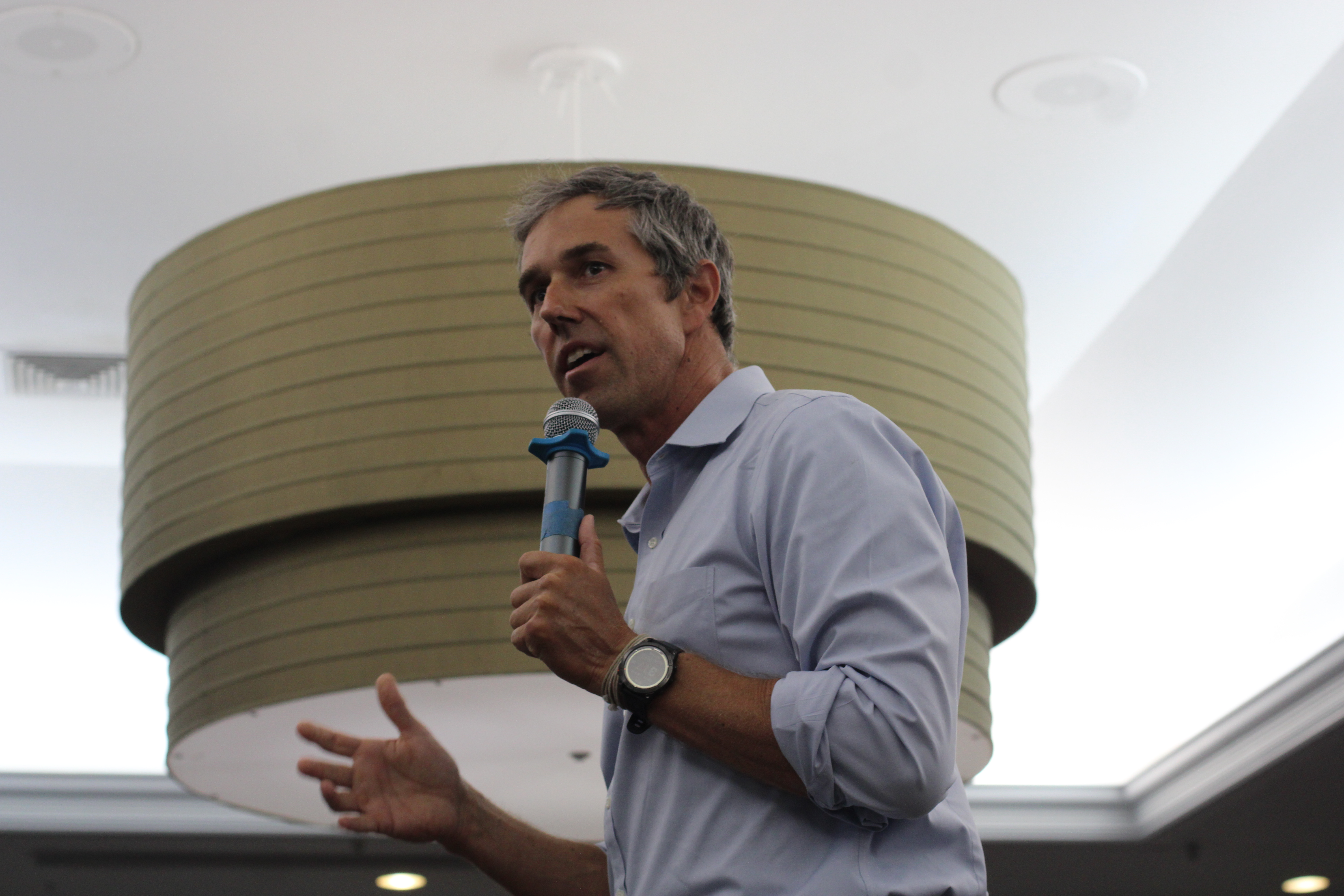Dallas filmmaker announces documentary about slavery with East Texas ties
Published 9:00 pm Thursday, June 17, 2021

- Eric Williams, a Dallas filmmaker, discusses his film, “Finding Mirriam,” which details the story of his ancestor Mirriam Williams and the historical research that took him from Africa to Harrison County, on Thursday on the downtown square in Tyler.
Eric Williams, a Dallas filmmaker, teamed up with Tyler District 3 City Councilwoman and Mayor Pro Tem Dr. Shirley McKellar on Thursday in downtown Tyler to announce the premiere of his documentary about his slave ancestor with East Texas connections.
Williams’ film, “Finding Mirriam,” details the story of his ancestor Mirriam Williams and the historical research that took him from Africa to East Texas.
Through the research, he found Mirriam’s gravesite in Harrison County, where she died and is buried near the grave of the man who enslaved her, Mimosa Hall Plantation owner John J. Webster. The documentary is available at findingmirriam.com.
McKellar, who is featured in the film, said with Juneteenth becoming a national holiday and the release of the documentary she thought it was important Tyler residents and East Texans know exactly what Juneteenth means. She also thanked the Juneteenth of Association of Tyler for the events over the years honoring the holiday.
Juneteenth is celebrated annually on June 19 as the day in 1865 when the news first arrived in Texas that the Civil War ended and that slaves were free.
Williams said the part McKellar was involved in discusses Camp Ford, the largest Confederate camp west of the Mississippi River according to the Texas State Historical Association.
He said the camp held many Union soldiers trying to free people from slavery in Tyler and East Texas.
“Camp Ford is one of those hidden, outdoor museums here in Tyler that is a representation of years past of the Confederate era,” Williams said.
The purpose of the film is to show people in the 21st century what slavery was and the importance of educating people about history, he said.
“We need to tell the whole entire picture and not some what they call critical race theory and whitewashing our history,” Williams said. “It’s real important that we educate white, Black, Mexican and Asian people on what happened and we need reparations and an apology for what did occur to repair.”
Both McKellar and Williams said they were excited to see Juneteenth officially recognized. President Joe Biden signed the legislation on Thursday afternoon, making Juneteenth a federal holiday.
Williams said the next step forward is to get reparations issued across America for descendants of the enslaved.
McKellar said it’s important to educate youth about Juneteenth to remind them about what their ancestors had to do as slaves. By educating the younger generation, McKellar hopes more will avoid incarceration.
“Our ancestors worked really hard so that they may be able to stay out of prison. Most of the time they did work for free,” she said. “We want to make sure those students pay attention and don’t get into a slavery-type mentality. What I mean by that is that we don’t want them going into prisons because that was like prison for our ancestors to have to work for free in the cotton fields in the heat.”
McKellar said she’s excited about what’s going on in Washington D.C., including discussions about reparations.
“I think about the generational wealth that was taken from African Americans,” she said. “It’s so important that our offspring know exactly what our ancestors dealt with so we can fight against that and make things better as we move forward to the future.”






